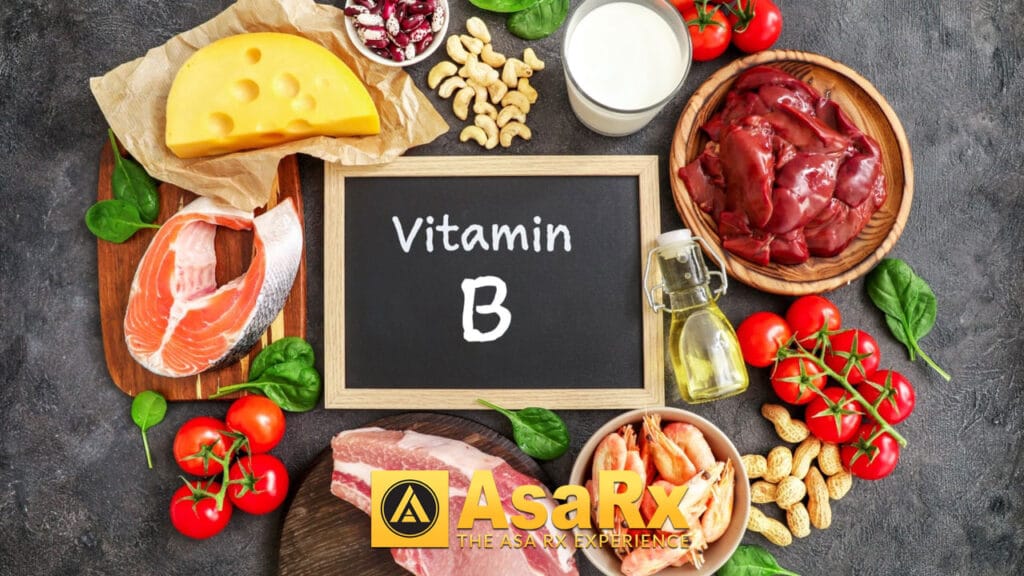When it comes to vitamins, at first it seems simple to keep track. After all, they’re alphabetical. You start at A and work all the way up to K. Admittedly, you’re not going to spend a lot of time on F, G, H and I. Still, that makes it easy to know if you’re eating the right vitamins to stay healthy.
However, it’s not vitamin B that falls between vitamins A and C; it’s B vitamins. Plural. What’s going on? Well, there are actually eight different compounds that come under the heading of B vitamins. It’s somewhat confusing because they’re not numbered consecutively, which is why these eight vitamins finish on B12. The missing numbers used to be considered vitamins but have now been recognized as different types of chemicals.
B vitamins do have proper names in addition to their numbers. The ones that are still officially vitamins are thiamine, riboflavin, niacin, pantothenic acid, pyridoxine/pyridoxal/pyridoxamine, biotin, folate and cobalamins. Each has its own specific role, so you need to make sure you have all eight of them.
Important jobs for the B vitamins include the processing of carbohydrates, fats and proteins; the formation of important enzymes; contributing to cell growth and change; repairing DNA and ensuring that other vitamins work properly when they enter the body.
Most B vitamins can be found in a variety of fruits, vegetables, nuts, seeds, eggs, dairy, meat and seafood. Some processed grains, such as flours and cereals, are fortified with extra nutrients like thiamine to ensure that people receive their recommended amount. There was a time when vitamin deficiencies were extremely common.
The importance of avoiding vitamin deficiencies becomes apparent when you take a look at some of the conditions caused when you don’t have enough B vitamins: beriberi from a lack of thiamine, pellagra when you don’t have enough niacin, pernicious anemia as just one of the types of anemia associated with a lack of B12. Some vitamin deficiencies are more common than others, but all of them can cause serious health complications. Some can even be fatal.
It’s not always easy to keep track of all the nutrients you need, let alone knowing if you’re eating enough of them. What is certain is that a balanced diet ensures that as many of these essential vitamins as possible make their way into your system, protecting you from some health problems.




